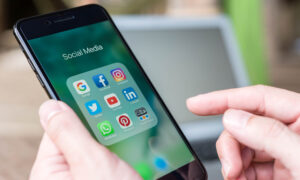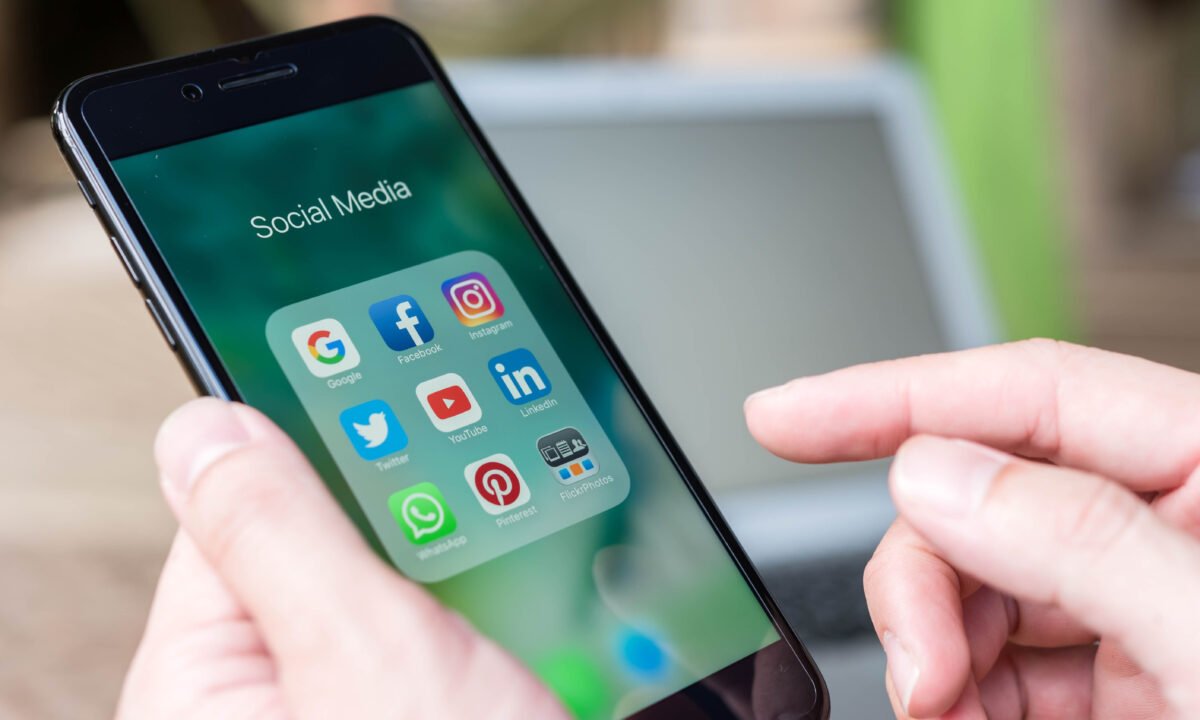How Social Media Affects Your Memory

The explosive proliferation of social media platforms, and their use by billions of people each day, shows us that this novel form of interaction between human beings and technology is having a profound impact.
This technology has allowed practically everyone, all over the world, to connect with neighbors near and far, and instantly share everything from cute pet photos to heated political opinions. Social scientists are scrambling to figure out what impact this sea change in human interaction is actually having on us—and on our brains—at each stage of life. Recent research shows that when it comes to memory, heavy social media use seems to weaken us.
The Dominating Influence of Social Media
Whether it’s Facebook, Youtube, Instagram, WhatsApp, or TikTok—each of which hold the regular attention of well over a billion users (or in the case of Facebook, almost 3 billion)—scrolling through social media feeds is a dominant pastime for many. Americans spend, on average, a little over two hours each day on social media, but this time varies widely between different age groups.
Generation Z, for example—those born from the mid-90s to around 2010, and the first generation to be raised with an internet connection always within reach—spends an average of 4.5 hours per day on social media. And these are “averages.” According to Pew Research, 46 percent of teens and 44 percent of 18–49 year-olds report being online “almost constantly,’” and it’s likely this same cohort spends an above-average amount of that time on social networking sites.
Social media is clearly a dominating influence, and questions are being raised about how this medium may be impacting our relationships, mental health, and cognitive function.
Social Media’s Harmful Impact on Memory
Despite the positive potential of social media to provide meaningful human connection, research shows concerning, harmful effects of heavy social media use on mental and emotional health, especially for adolescents.
Three related studies, published in the May 2018 Journal of Experimental Social Psychology, examined how memory is affected when participants record their experiences using digital media, when they share them, and when they simply don’t use media. In each case where participants recorded or shared their experiences, their ability to remember details from their experience was reduced.
“Across all three studies, we found evidence that media use impairs memory, irrespective of whether memory was tested soon after the experience or over a week later,” the study authors concluded.
Another study, published in February 2020 on behalf of The Gerontological Society of America, examined the correlation between memory and time spent on social media in adults and found that, on days that social media usage was “high,” participants consistently reported more memory failures.
By Design–’Dopamine Hit’ Keeps You Addicted
Social media could be undermining our ability to remember for a couple of reasons: it’s distracting and addictive. That’s by design.
“The thought process that went into building these applications, Facebook being the first of them … was all about: ‘How do we consume as much of your time and conscious attention as possible?’ And that means that we need to sort of give you a little dopamine hit every once in a while because someone liked or commented on a photo or a post or whatever,” Sean Parker, the first president of Facebook, said in a 2017 interview with Axios.
That mechanism will trigger users to contribute more content, likes, and comments, said Parker.
“It’s a social-validation feedback loop … exactly the kind of thing that a hacker like myself would come up with because you’re exploiting a vulnerability in human psychology. The inventors … understood this consciously. And we did it anyway.”
Dr. Matt Johnson, a neuroscientist with a doctorate in cognitive psychology from Princeton University, consumer psychology expert, and author of “Branding That Means Business,” told The Epoch Times that experiences like that can pre-empt memory formation.
“There’s an important process that needs to happen for new memories to be formed. The better we’re focussed on the experience, the better we’ll recall it later. When we’re having an experience and our phone is there, we’re always going to be checking it. There are a host of digital experiences that can lure us away from the experience we could be having.”
Precisely because it’s hard to stop ourselves from reaching for a device every time it lights up with a notification, we are distracted and multitasking more than ever—but we’re not very good at it. In one randomized controlled trial, college students who scrolled through Instagram while listening to a speaker recalled significantly less of the material presented than their peers who listened without digital distraction.
We just don’t remember things as well when our attention is divided. And the impact on education is concerning.
“As a professor, I see it myself,” said Johnson, noting the effects of digital distraction on the classroom experience.
“Also, the longer you spend on these platforms, you acquiesce to immediate gratification. You get a real uncomfortable impatience with experiences which are not immediately gratifying. Education is a long-term proposal. The students lose patience for longer-term enterprises, like learning a subject or getting through a course.”
The ‘Google Effect’
Another way heavy social media use may impact memory is by way of a phenomenon researchers are calling the “Google effect.” Not so long ago, finding information about an unfamiliar subject meant substantial personal effort—trips to the library, paging through reference books, or phone calls to others who might be in the know.
Now that virtually any bit of information, from the most trivial to the arcane, can be found in seconds via Google or other search engines, not only does it take less effort to find information, but most of us also put less effort into remembering it. We in effect “outsource” our memory to the internet, and use social media as one of our personal online memory banks.
In fact, one study published in the Aug 5, 2011 issue of Science found that “when people expect to have future access to information, they have lower rates of recall of the information itself and enhanced recall instead for where to access it.” In other words, we’re more likely to remember which website to search than the actual information we’re looking for.
Johnson said when it comes to learning, effort matters.
“There’s a really strong relationship between the effort you tend to put into a task and how likely you are to remember it. The more you strain your cognitive faculties, the better you’ll be able to remember it. If you really have to work for it, combining a lot of different cognitive processes, that’s going to be a very strong memory. Online, you’ll get the answer, but you’ll basically have no memory of that experience and have to look it up again. We export our long-term memory to these devices.”
Breaking the Habit
To what extent social media can create enjoyable experiences and meaningful connections between people may be up for debate, but one thing is not—the amount of time most of us spend on social media is changing what we remember, how we remember it, and possibly even our memory capacity. And a growing body of research suggests that, in large amounts, the effect on memory is mostly detrimental.
It’s impossible to say precisely how much time spent on social media is too much, but there are some simple guidelines that can help manage use, especially for adolescents. Research suggests that negative mental health effects increase when more than two hours are spent on social networking sites daily, so that may be a good upper limit to be aware of.
Johnson suggests also regularly reflecting on your recent social media experiences and being aware of any regrets or negative experiences associated with that time.
Putting clear limits on time spent on social media is also prudent. Johnson suggests using a timer to have an audible reminder of when the time is up.
“When the timer goes off, turn [the app] off even if it’s mid-video. Set up a strict structure for how long you allow yourself to stay on these apps. Essentially we need to export our approach to them to external rules. If we leave it to our own self-discipline, the apps will beat us every time because that’s what they’re designed for.”




